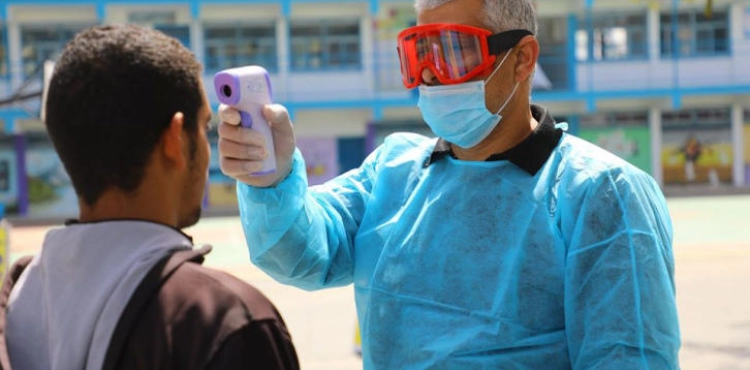The International Network of Experts of the Palestinian Issue in the Arab Renaissance Organization for Democracy and Development (Ard) sent a message of solidarity on the anniversary of the setback through a position paper on the impact of the Covid-19 crisis on the conditions of Palestinian refugees in Jordan, Lebanon and occupied Palestine , And Syria.
The paper highlighted regional and local facts indicating the fragile human conditions of the approximately 5.6 million Palestinian refugees currently registered in Jordan, Lebanon, Syria, and Occupied Palestine. Less than half of these 58 live in camps, official Palestinian refugee camps. Although the number of affected cases is still small, thanks in large part to the preventive measures taken by the refugees themselves, this summary confirms that the risk of a public health crisis remains high.
Refugee camps generally suffer from poor humanitarian and economic conditions, making it impossible to cope with the health crisis, embargoes and prevention instructions, as well as poor health infrastructure, water and sanitation, which increases the risk of infection.
In addition to the reality of poverty, the work of the majority of Palestinian refugees in the informal sector and daily work, and closures and bans caused 90% of them to lose their job opportunities. This is in addition to their limited coverage in relief efforts in most of their host countries and their dependence on UNRWA, which suffers from great challenges in securing the necessary funding for its operations as a basic provider of humanitarian services in the camps.
Accordingly, the paper provided a brief overview of the legal and international obligations that could be applied in the case of Palestinian refugees; Such as the right to health and livelihoods, and the right to equal treatment and non-discrimination, as guaranteed by the principles of international humanitarian law.
In light of the existing rights and obligations towards the Palestinian refugees, the International Network of Experts recommended the Palestinian issue to consider taking a number of measures to mitigate the impact of the Covid-19 pandemic, and to ensure the protection, safety and health of Palestinian refugees in Jordan, Lebanon, occupied Palestine, and Syria. Among them was the demand by the international community and donors to remind the Israeli occupation state of the obligations that it has as an occupying power in accordance with international humanitarian law and to lift the blockade of Gaza to allow entry of medical supplies and workers. In addition to including the Palestinian refugees as part of the global response efforts of the Covid-19 pandemic, and strengthening UNRWA support, through the full funding of UNRWA´s urgent appeal for the Covid 19 response. The network also called on the governments of the host countries to commit to protecting the rights of Palestinian refugees and their inclusion in appropriate health services and social protection efforts; And enabling them, as residents of these countries, to have universal access to health services without discrimination, and to fight hate speech against refugees within all media materials of the state and society.
Also, the network called on UNRWA and other NGOs to ensure that the Palestinian refugees receive the necessary assistance that strengthens their resilience and provide the necessary information about them without discrimination including Palestinian refugees from Syria, women and children, and to protect them from potential threats and humanitarian crises that are expected to be exacerbated by the Covid crisis- 19 and its economic and social consequences for the region. The network also urged refugees and host communities to enhance solidarity between refugees and the host community to combat the spread of Covid-19 and its indirect impact on society.
Finally, the paper stresses the need to work to end the suffering of refugees, which has been going on for more than 72 years, and to seek a just and comprehensive solution to their cause and enable them to have their inherent right to return to their homeland.












